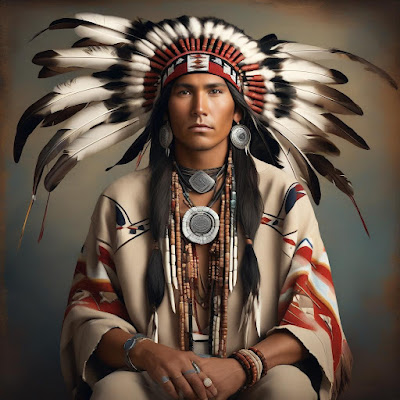November is National Native American Heritage Month in the U.S., a time dedicated to honoring the culture, history, struggles, and contributions of the Indigenous peoples of North America. While these communities deserve recognition and respect every day, November serves as a special reminder to focus on their enduring legacy.
In recent decades, tension has arisen between the Italian American community and Native Americans, largely centered around the legacy of Christopher Columbus. Despite Columbus sailing for Spain—where he was known as Cristóbal Colón and even gave his children Spanish names—Italians and Italian Americans continue to regard him as a hero linked to their heritage. In the U.S., many Italian Americans view him as a figure who paved the way for European colonization, the Christianization of the Americas, and the eventual founding of the United States. Some even consider him the first immigrant.
However, Native Americans, who suffered greatly from European colonization, see Columbus as a symbol of their victimization. They view him as a villain responsible not only for atrocities against the Indigenous people he encountered but also for setting in motion centuries of oppression by European settlers.
Efforts by Italian Americans to clarify Columbus’s legacy—arguing that his more negative actions have been exaggerated—have failed to bridge the gap between the two groups. Regardless of whether Columbus is seen as a hero or a villain, the undeniable truth remains: his "discovery" of the Americas opened the door to colonization and the eventual suffering of Native populations. Finding common ground on this complex historical figure remains elusive.
In a global society and a culturally diverse nation like the U.S., The Italian Californian aims to build bridges and foster connections with other ethnic and cultural communities, including Native Americans. While the Columbus debate may never be fully resolved, our hope is to find common ground on shared values and issues that bring us together.
Italians and Native Americans actually share much in common, though these similarities have often been overshadowed by the Columbus controversy. Like the Americas, Italy has been repeatedly conquered and colonized by foreign powers throughout history. Italians, particularly in the South and Sicily, are well aware of the hardships brought by conquest and oppression. In the U.S., Italian immigrants faced significant prejudice and discrimination in the early 20th century.
Despite these parallels, the fact that most Italian Americans have successfully integrated into mainstream American society has caused our struggles as a minority to fade from memory, even within our own community. The Columbus issue has only deepened the divide between us and other groups that have endured prejudice and conquest, such as Native Americans.
This e-magazine holds no illusion that we will resolve the Columbus controversy. Instead, we aim to focus on the common ground we share with our Native American brothers and sisters. Even today, Native Americans face significant hardships, particularly on certain reservations, where poverty and other challenges persist. While we cannot undo the suffering they have endured, we can extend an olive branch by first recognizing and understanding their ongoing struggles, and second, by contributing in any small way we can to address these contemporary issues.
You can learn more about contemporary Native American issues through this Google search link here:native american issues today - Search (bing.com) and here: Microsoft Copilot in Bing
Throughout American history, Italians have stood up for minority groups, including Native Americans. A shining example is Father Eusebio Kino, an Italian Jesuit priest who worked in what is now Mexico and the American Southwest during the late 17th and early 18th centuries. Under the Spanish flag, Fr. Kino was a strong advocate for Indigenous rights, defending Native peoples from the abuses of Spanish soldiers and resisting their forced labor in Spanish mines.
Father Eusebio Kino’s legacy is honored with statues in several key locations across the U.S., Mexico, and Italy, recognizing his advocacy for Native Americans and his missionary work. In the United States, one of the most prominent statues is located in the U.S. Capitol’s National Statuary Hall in Washington, D.C., where Kino represents the state of Arizona. There are also statues of Kino in Tucson, Arizona, and at Kino Park in Nogales, Arizona.
In Mexico, his memory is preserved with statues in various locations, including Hermosillo and Magdalena de Kino in the state of Sonora, where his remains were discovered. These statues commemorate his extensive missionary work and his contributions to the local Indigenous communities.
In Italy, his birthplace of Segno, located in the Trentino region, proudly honors him with a statue, celebrating his Italian heritage and his humanitarian contributions across the world.
These statues stand as lasting tributes to Father Kino's enduring legacy as a defender of Native rights and a pioneer who bridged cultures.
Father Kino is perhaps the most notable, but certainly not the only example of Italians who have stood up for Native Americans and other marginalized groups. These advocates deserve recognition and should not be overlooked or forgotten due to the controversy surrounding Columbus.
You can learn more about Kino here:





.jpg)
